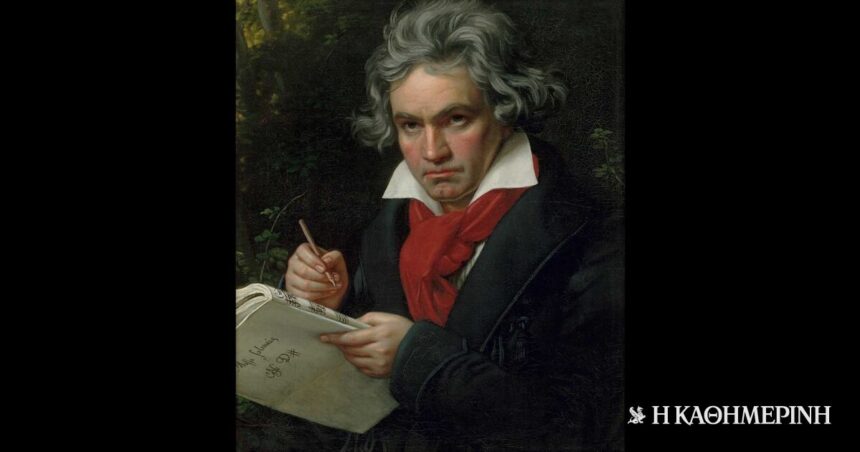On April 2, 1800, Ludwig van Beethoven presented his First Symphony for the first time to the audience of the Austrian capital, Vienna. The Burgtheater was packed, as the music-loving society of Vienna looked forward to witnessing the work of the young and promising composer from Bonn. A few years earlier, in the same theater, which had been built by order of Empress Maria Theresa in 1741, Wolfgang Amadeus Mozart had presented three of his operas (Abduction from the Serai, The Marriage of Figaro, So Do All), as well as the Piano Concerto No. 24 in C Major;
Beethoven lived up to the expectations of classical music lovers. His performance, which included, in addition to the First Symphony, other works by himself as well as works by Haydn and Mozart, was considered a success. The Allgemeine Musikalische Zeitung, in fact, described Beethoven’s performance as “the most interesting musical event in a long time.”
Beethoven showed early on that he would follow the career of a composer. He was born in Bonn and baptized in the Catholic church of St. Remigius on December 17, 1770. Since there is no official document attesting to the exact day of his birth, researchers of his life claim that Ludwig was born on December 16, based on their theory to the custom of that time in Bonn to baptize children one day after their birth. His grandfather, whose name he bore, was a baritone at the Court of the Electorate in Cologne and later took over as conductor in Bonn, where he moved. Little Ludwig’s father, Johann, was also a musician and tenor, but without particularly distinguishing himself.
From an early age, Ludwig showed his inclination towards music. His father, in fact, knowing the history of Mozart, for whom his father, Leopold, did everything to highlight him, tried to present the little Ludwig as a child prodigy in his first performances in 1778.
Growing up in Vienna, Beethoven was influenced by the ideas of the Enlightenment. He studied alongside Christian Neefe and Andrea Lucchesi, while in 1786 he went to Vienna with the hope of studying with the greatest composer of his generation and definitely his role model, Mozart. The details of their relationship are not known. Many still doubt whether the two musicians ever met.
In 1792 Beethoven decided to settle permanently in Vienna, one of the major centers of classical music in Europe. There he developed a friendship with Joseph Haydn, who deeply influenced the young Ludwig. During the first years in Vienna, Beethoven devoted himself to his musical studies and to the performance of the works of others, making a very good impression in the music-loving circles of the Habsburg capital. Gradually he began to publish his works, many of which he dedicated to people who supported him financially, such as Prince Carl von Lichnowski. He chose not to join the Court of a noble nor to work in the Church, maintaining his independence as a composer. Beethoven supported himself by the proceeds of his concerts and the production of commissioned works.
His life was marked by the gradual loss of his hearing, which ended in 1820 in permanent deafness. As he noted in his will, with his two brothers, Karl and Johann, also known as the Heiligenstadt Will, he was greatly distressed by the fact that he could not participate in social gatherings due to his hearing loss. The result was that he isolated himself and showed outwardly the face of a single-haired man. It is said that at the premiere of his Ninth Symphony, Beethoven, who conducted the work, could not hear the applause of the audience. He had to be turned towards the audience for a bow by one of the soloists. Despite the difficulties he faced, Beethoven never stopped composing. He passed away in March 1827 at the age of only 57.
Column editor: Myrto Katsigera, Vassilis Minakakis, Antigoni-Despina Poimenidou, Athanasios Syroplakis




